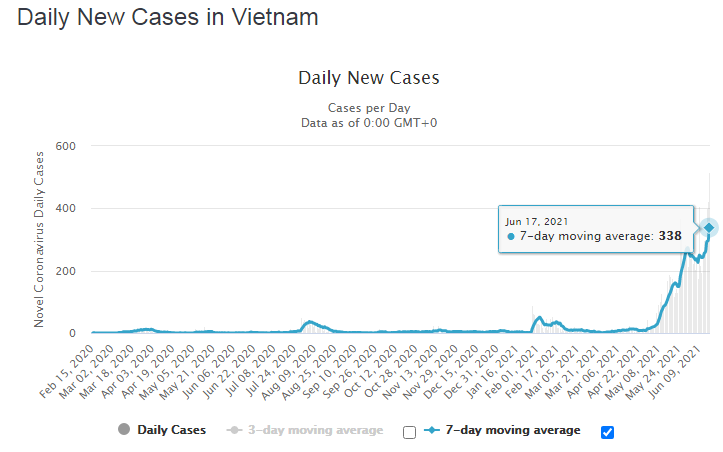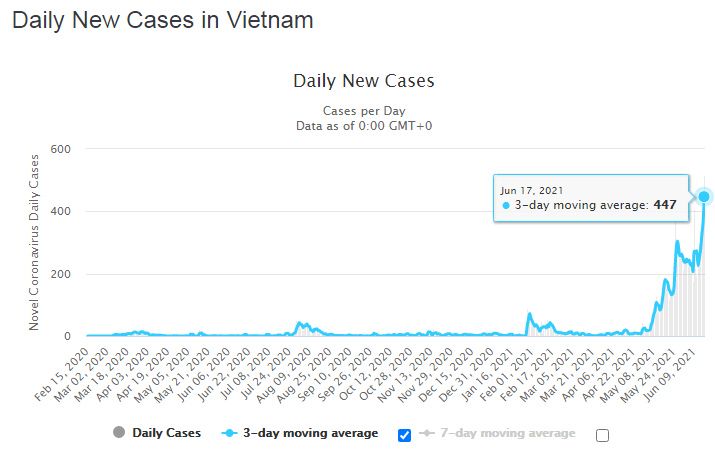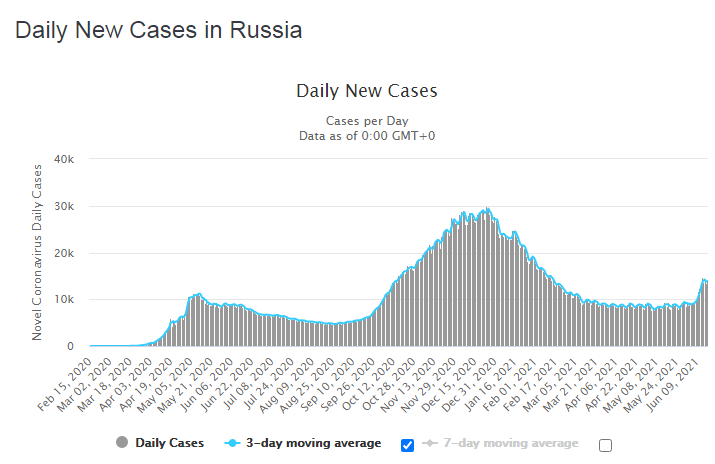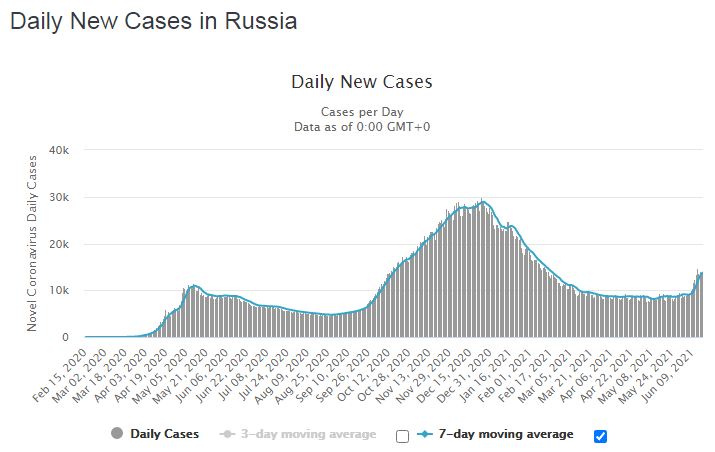Even with the delay in England’s lockdown lifting, Covid cases and deaths will still rise
The prime minister has announced that England is not yet able to remove the final public health measures that are in place because of the Covid-19 pandemic, and that these measures are likely to remain until 19 July. So why is this step needed, and what are the potential benefits of an additional four weeks of restrictions? Will this be enough to prevent a further wave?
The Delta variant of Sars-CoV-2 (first identified in India) has become the most common strain in the UK over the past few weeks and is spreading rapidly as a result of its being more transmissible than the Alpha (Kent) variant responsible for the January 2021 wave – the number of infections is doubling every seven to 10 days at present.
The Delta variant also appears more likely to require hospital admission than the previous variants, and the number of people being admitted to hospital and to intensive care is on the rise once again. Today there are around 1,000 people in hospital with confirmed Covid-19 in England, 160 of them requiring mechanical ventilation. That’s the equivalent of around 10 medium-sized intensive care units, just for people with Covid-19.
The easing of public health measures over the past few months was always going to result in an increased number of Sars-CoV-2 infections. More people having more social interactions, and in closer proximity, increases the chance of viral transmission. However, we now have vaccines that are excellent at reducing the severe consequences of Covid (two doses of either Pfizer/BioNTech or Oxford/AstraZeneca are more than 92% effective at reducing the need for admission to hospital).
Yet we still have to be concerned about the rising number of people testing positive for the virus. To date, 57% of UK adults have received two doses of a Covid vaccine, and 79% have received a single dose. But around 4.5 million of the former received their second dose in the past two weeks, so have not yet developed optimal immune protection.
Taking away the public health restrictions now would result in a significant further increase in viral transmission. And given that approximately half Britain’s adults have yet to be fully immunised, removing the restrictions now would result in a substantial number of people needing hospital admission and even dying in the coming weeks.
A delay until 19 July before releasing the restrictions will allow all those aged over 50, and those who are clinically extremely vulnerable, to have second doses, and for those vaccinations to have taken effect. And by then it is likely that all adults will have been offered their first dose of the vaccines, and two-thirds will have had a second dose – which is likely to reduce hospital admissions by between 30% and 50%.
Yet it is important to be clear that the restrictions that have already been relaxed over the past few months are likely to lead to further increases in infections, hospitalisations and deaths in the coming weeks: the pause announced by Boris Johnson on Monday means we have taken our foot off the accelerator but not applied the brakes.
The four-week delay also means we are due to end restrictions as the school summer holidays begin. While it is critically important for children to be in the classroom, it is inescapable that schools are a setting where there is increased viral transmission – there is little social distancing in the classroom, and pupils are no longer required to wear masks. It is possible that in the autumn, when students return for the new academic year, we may need to revisit what measures are needed in our schools.



